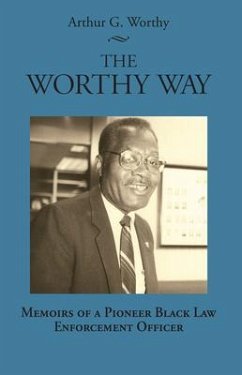Arthur G. Worthy was raised in Marengo County, Alabama, had served in the military, and was a student at then-Alabama State College when he had a chance opportunity to become one of the first black police officers in Montgomery. He consulted his wife Mildred and decided to take the job. The year was 1954, one year before Montgomery would make civil rights history in the Montgomery Bus Boycott. Worthy found police work to be interesting and challenging. Though he later left the police department to teach school for a few years, he remained interested in law enforcement. By 1964, the United States Marshals Service was seeking to desegregate its ranks, and Worthy was nominated for a deputy marshal position in the Middle District of Alabama. He served with distinction in that job for twenty years. Among his memorable experiences were serving papers related to the Selma-to-Montgomery March, supervising the transport of deadly nerve gas, guarding foreign dignitaries and witnesses in federal trials, and investigating EEOC complaints.
Hinweis: Dieser Artikel kann nur an eine deutsche Lieferadresse ausgeliefert werden.
Hinweis: Dieser Artikel kann nur an eine deutsche Lieferadresse ausgeliefert werden.








